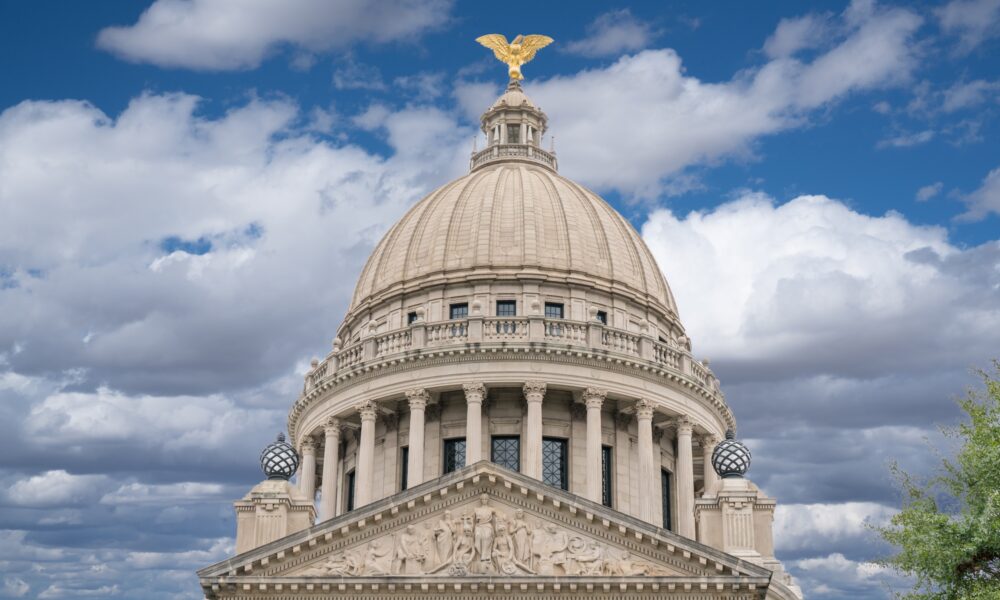Committee
Technology; Judiciary A; Judiciary B
Author
Jill Ford
Session
2024 Session
Latest Action
On April 30, the Governor signed HB 1126 into law.
Explanation of the Bill
House Bill 1126 would create the Walker Montgomery Protecting Children Online Act. The purpose of this would be to protect minors through requiring them to receive parental permission in order to use digital service platforms. Other states, including Utah, Texas, Louisiana, and Arkansas have recently passed similar legislation, though a judge has blocked the legislation from taking effect in Arkansas.
The Walker Montgomery Protecting Children Online Act is named after Walker Montgomery, a teenager who lived in Starkville. In 2022, Montgomery took his own life after a “sextortion” event, in which a stranger on Instagram posing as a female convinced him to participate in a sexual encounter, which they recorded. The person then threatened to send the video to Montgomery’s friends and family unless he paid them.
Applicability
The act would apply to digital service providers that:
- Allow users to socially interact with each other;
- Allow users to create a public or private profile; and
- Allow users to create content that can be shared
A digital service is defined as any “website, an application, a program, or software that collects or processes personal identifying information with internet connectivity.” Considering this definition, it appears that this act would include, but not be limited to, most social media platforms.
Companies primarily used for career development (such as LinkedIn) would not be subject to the provisions of the bill.
Parental Consent
Digital service providers would be required to register, and make reasonable efforts to verify, a person’s age in order for that person to create an account with the provider. Known minors may not hold an account with the provider unless they have consent from their parent or guardian. Digital service providers could obtain parental consent through:
- Providing a form for the parent or guardian to sign and return via mail, fax, or scan;
- Providing a phone number for the parent or guardian to call to provide consent;
- Coordinating a video call with the parent or guardian;
- Allowing the parent or guardian to provide consent by responding to an email; or
- Other reasonable methods of obtaining consent.
The bill states that a service provider may “collect information related to the government-issued identification” of the parent or guardian in order to obtain their consent.
Use of Digital Service by Minor
A digital service provider that enters into agreement with a minor would be required to:
- Only collect information of the minor that is “reasonably necessary” to provide the digital service; and
- Use the minor’s personal information only for the purpose it was collected.
- Develop and implement a strategy to mitigate the minor’s esposure to harmful material.
The digital service provider could not:
- Use the digital service to collect data on the minor’s location;
- Use the digital service to display targeted ads involving material that is harmful; or
- Share, disclose, or sell the minor’s personal information unless they are complying with a governmental or law enforcement investigation, preventing the distribution of harmful material to the minor, blocking spam, preventing criminal activity, or protecting the security of a digital service.
Recourse
If a digital service provider violates this act, the parent or guardian of a minor could bring a cause of action seeking:
- A declaratory judgment under Rule 57 of MS Rules of Civil Procedure; or
- An injunction against the digital service provider.
Other Provisions
HB 1126 creates definitions of “morphed image” and “identifiable child” and adds these to the section of the law concerning crimes of child exploitation.
The purpose of HB 1126 appears to be to protect minors who use social media platforms. Its ability to achieve this goal is unclear, as there may be ways for minors to get around the requirements of obtaining parental permission in order to sign up for a digital service platform. Additionally, even minors who make accounts with parental permission could be exposed to harmful material on social media.
HB 1126 contains a reverse repealer, meaning that it must be amended before becoming law.
| Date | Details |
|---|---|
| 4/8/24 | On April 9, the Senate amended and passed HB 1126. The amendment to the bill removes a provision that would have allowed parents or guardians to seek monetary awards from digital service providers for violating the Walker Montgomery Protecting Children Online Act. |
| 4/12/24 | On April 12, the House invited conference on HB 1126. |
| 4/24/24 | On April 24, the House and Senate voted to approve the conference report for HB 1126. |
| 4/30/24 | On April 30, the Governor signed HB 1126 into law. |

